—
Introduction:
In today’s rapidly changing world, the impact of digital advancements has become increasingly significant across various sectors. One of the most notable areas where technology is making waves is in the financial sector , where disruptive technologies are reshaping the way we manage money, investments, and economic activities. Alongside finance, fields like intelligence , and the healthcare industry are benefiting from new tech solutions. In this article, we will explore how technology is transforming these fields and creating opportunities for growth, efficiency, and innovation.
—
Technology’s Role in Finance:
Technology has always been a key player in transforming finance . With the rise of digital banking, fintech, and blockchain, financial services are becoming more efficient, secure, and accessible than ever before. Innovations like blockchain have introduced new ways of conducting transactions, offering enhanced security . Moreover, deep learning is being used to analyze vast amounts of financial data, helping institutions predict market trends, manage risks, and make data-driven decisions.
Financial institutions are now leveraging these innovations to improve their customer experience. Online banking platforms, mobile wallets, and peer-to-peer lending services are just a few examples of how technology has made financial transactions easier and more inclusive. Additionally, automated systems are enabling faster and more accurate processes for tasks such as fraud detection, credit scoring, and investment analysis. As a result, individuals and businesses alike can now access financial services with greater ease and lower costs than before.
—
Artificial Intelligence in Business and Personal Intelligence:
Artificial intelligence (AI) has emerged as one of the most important technological advancements in recent years. In business, AI is transforming how companies operate, innovate, and deliver services. AI-driven systems are being used for a range of tasks, including predictive analytics, customer service, supply chain optimization, and personalized marketing. By analyzing vast datasets, AI algorithms can identify patterns, make predictions, and help businesses make more informed decisions.
On a personal level, AI is also transforming human intelligence and decision-making processes. Intelligent virtual assistants, such as Siri , are making it easier for individuals to access information, manage their schedules, and make everyday decisions. AI-powered education tools are enhancing learning experiences by providing personalized recommendations and adaptive learning paths. Furthermore, AI is helping individuals with disabilities, such as through speech recognition and assistive technologies that improve accessibility.
As AI continues to evolve, it is opening up new opportunities for people to enhance their cognitive abilities, from decision-making to multitasking. The integration of AI in everyday life is reshaping how we work, learn, and interact, ultimately enhancing our personal and collective intelligence.
—
Health and Technology:
The integration of technology in healthcare is improving patient outcomes, increasing accessibility, and streamlining operations. Telemedicine has revolutionized the way healthcare services are delivered, especially in rural or underserved areas. With the help of telemedicine platforms, patients can now consult with doctors virtually, eliminating the need for long-distance travel and reducing wait times. Moreover, the use of AI in diagnostics and treatment planning is enhancing the accuracy of medical decisions and enabling more personalized care.
Wearable devices, such as smartwatches , are also playing a crucial role in the management of chronic diseases and overall health. These devices track vital signs, physical activity, and sleep patterns, providing real-time data that can help patients and healthcare providers monitor health conditions. In addition, machine learning algorithms are being used to analyze medical records, identify disease patterns, and predict potential health risks.
The future of healthcare is also moving towards personalized medicine, where genetic information, lifestyle data, and environmental factors are used to tailor treatment plans for individuals. Advances in genomics and biotechnology, combined with AI, are enabling the development of targeted therapies that are more effective and have fewer side effects.
—
The Intersection of Finance, Technology, Intelligence, and Health:
The integration of finance, AI, and healthcare is creating a new ecosystem that drives innovation and enhances the quality of life. One example is the growing trend of health insurance platforms that incorporate AI-driven insights to help individuals make better decisions about their health and finances. By using data analytics, these platforms can offer personalized advice on everything from insurance plans to investment strategies that align with a person’s health and financial goals.
Furthermore, funding AI-driven healthcare solutions has become a strategic focus for many investors and businesses. The synergy between these industries is resulting in more efficient healthcare delivery, better financial management for patients, and improved patient outcomes. In the future, we may see further integration where AI tools help individuals manage both their health and finances seamlessly, offering a holistic approach to well-being.
—
Conclusion:
As we move forward into an increasingly interconnected world, the convergence of technology with finance , artificial intelligence, and the healthcare industry will continue to evolve. The integration of AI, machine learning, blockchain, and other advanced technologies is not only improving the way we manage our finances and health but is also changing how we think, learn, and make decisions. slot777 open up new possibilities for individuals, businesses, and healthcare providers to improve efficiency, reduce costs, and ultimately enhance quality of life. As these sectors continue to grow and adapt to technological advancements, the potential for positive change is limitless.
Exploring the Impact of Technology on Finance, Intelligence, and Health
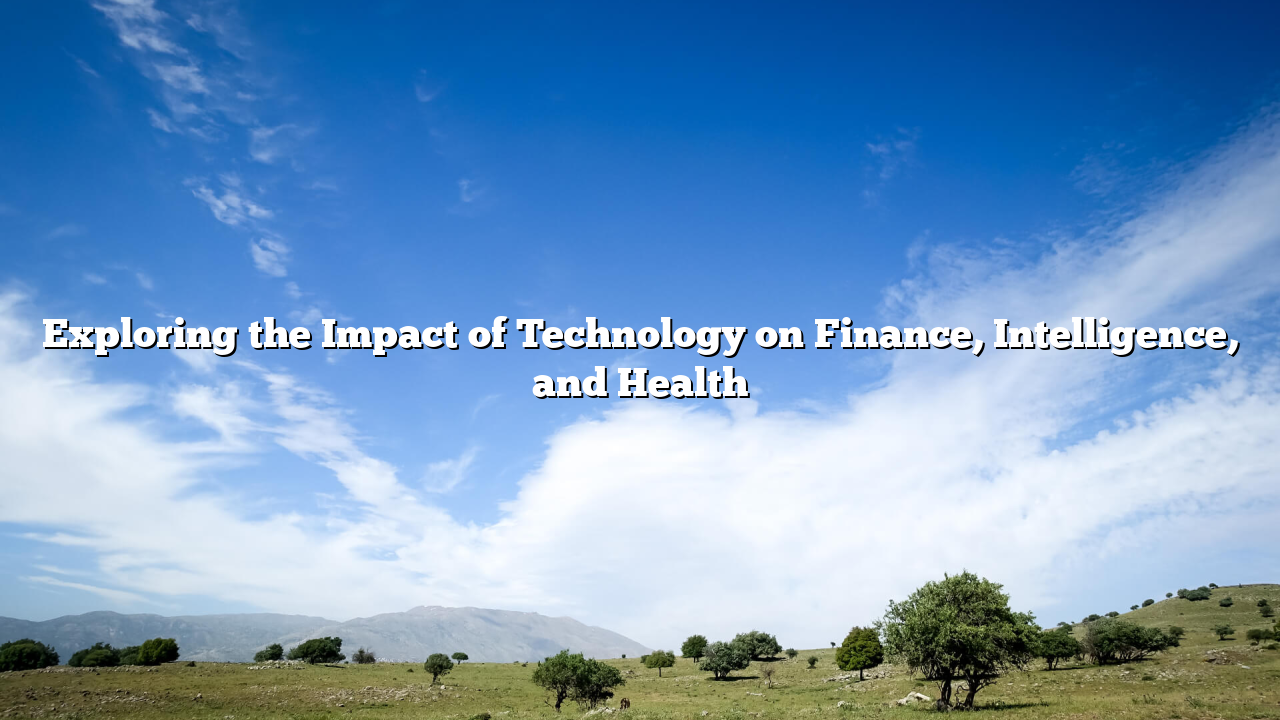
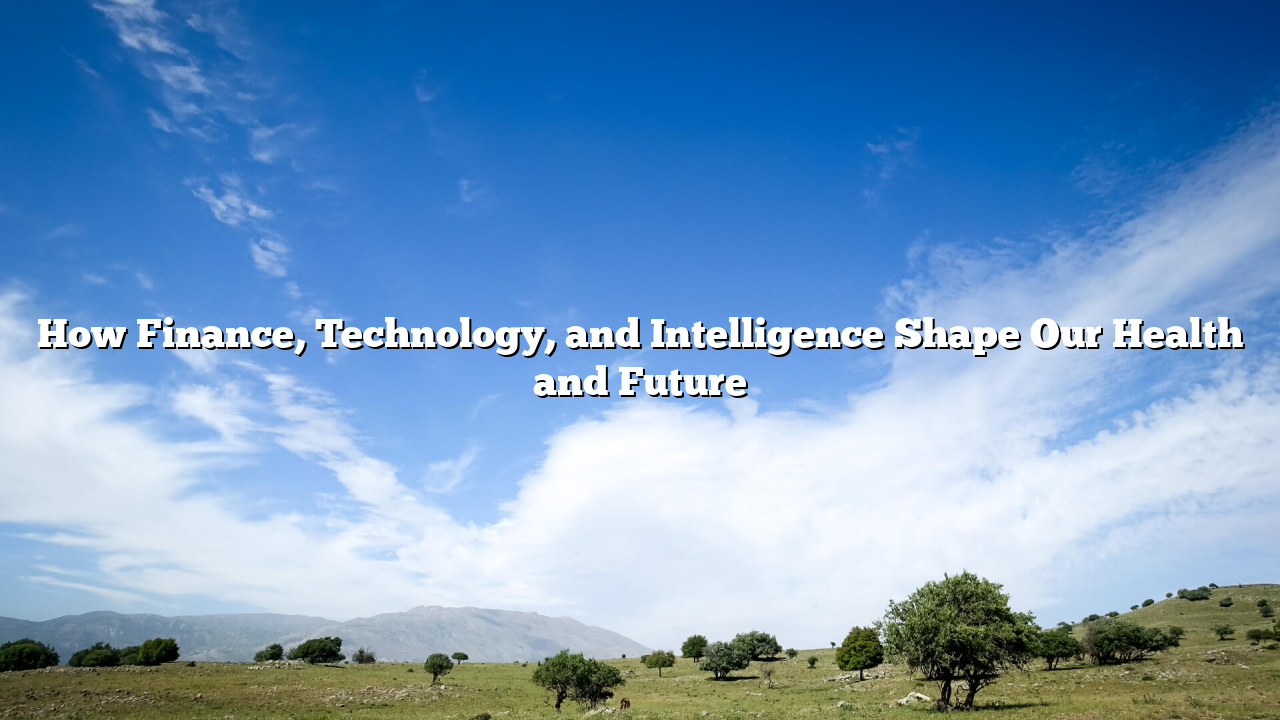
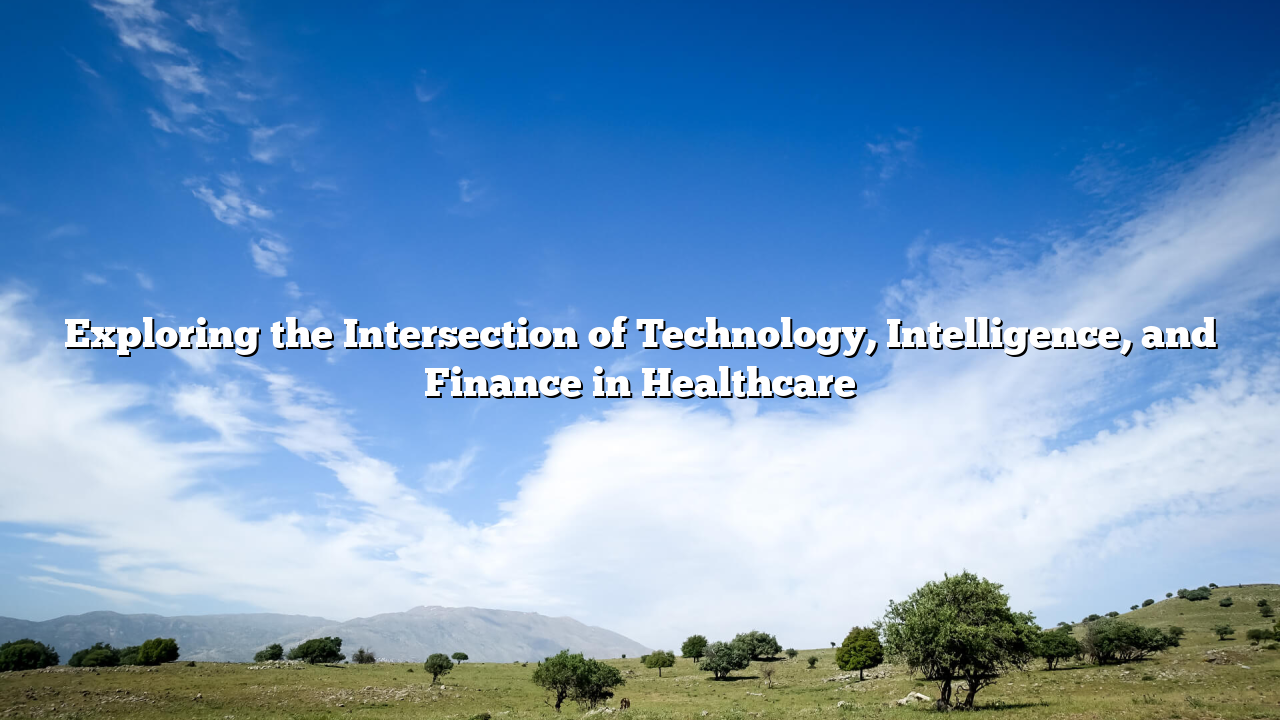
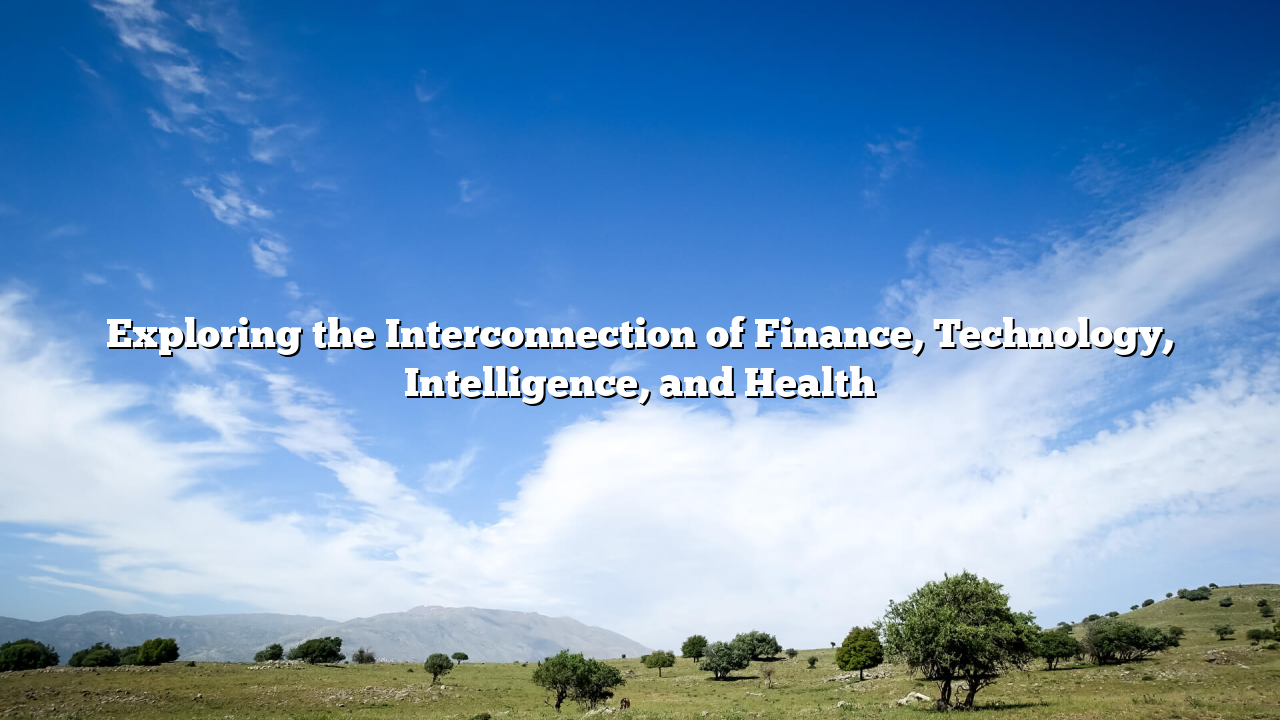
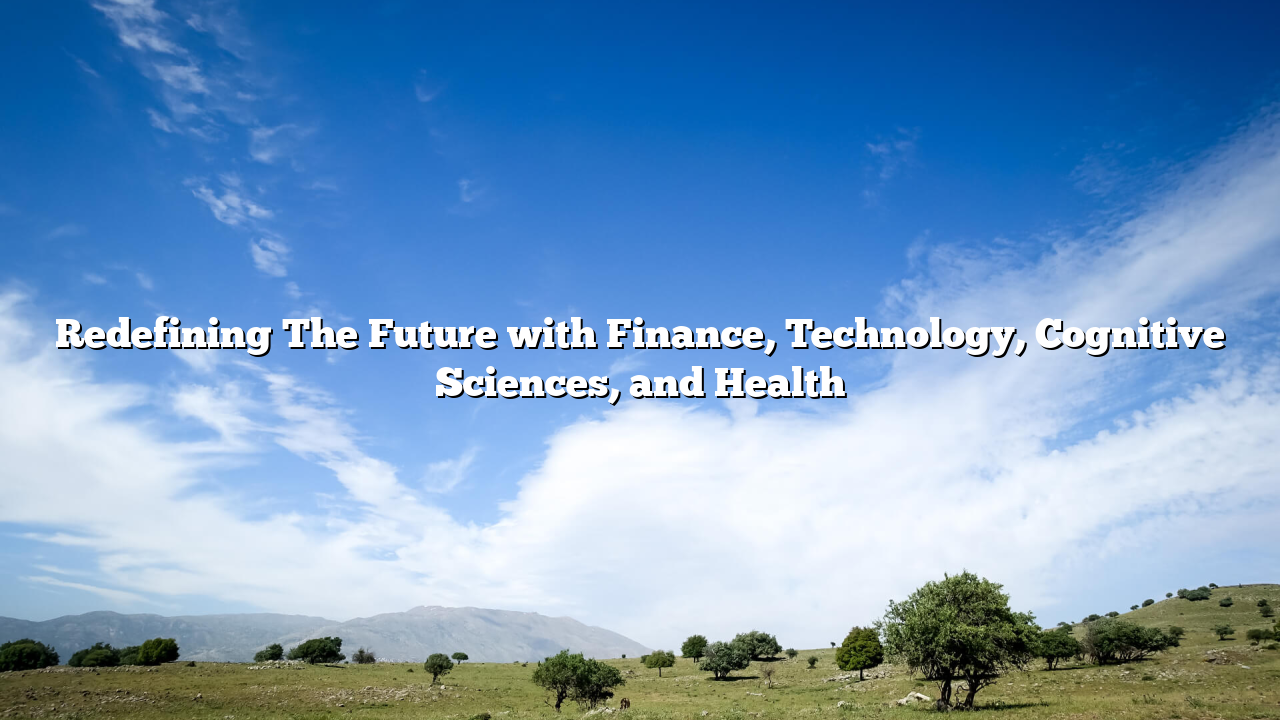

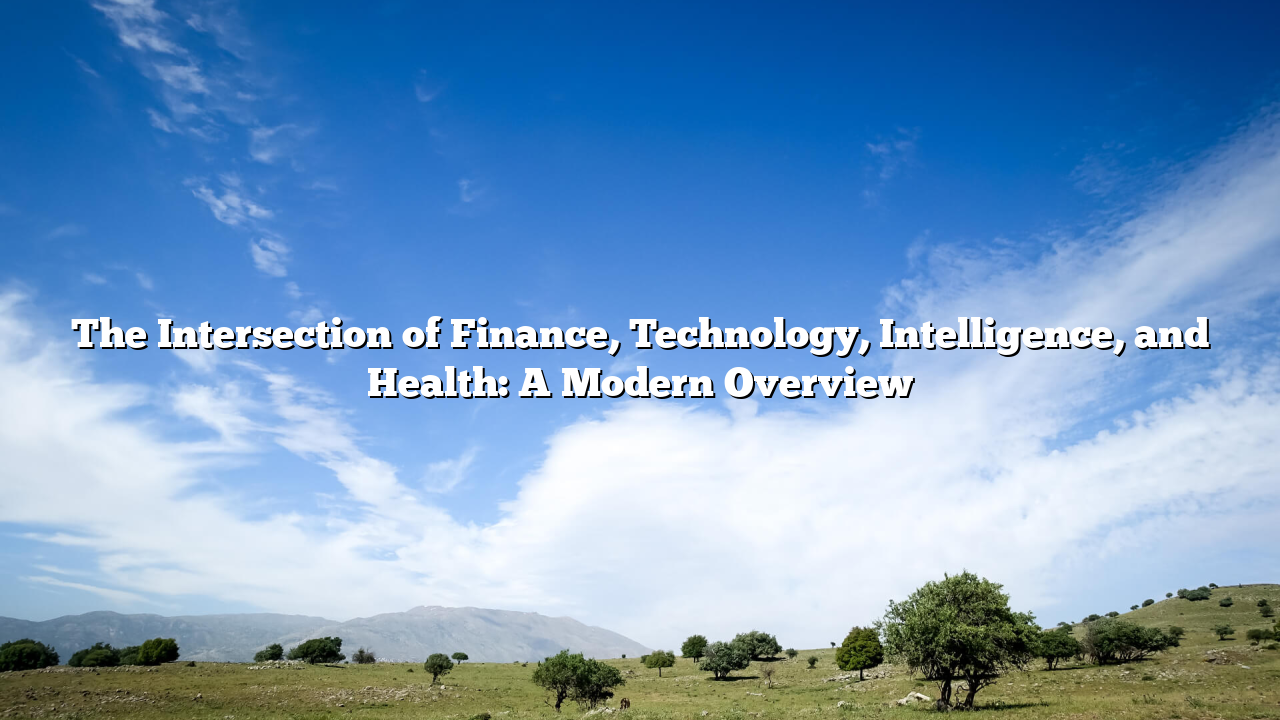




Leave a Reply